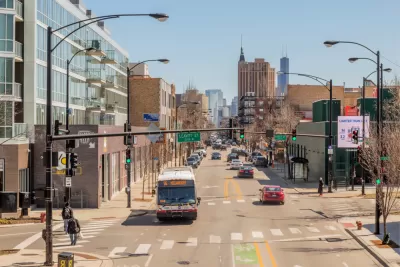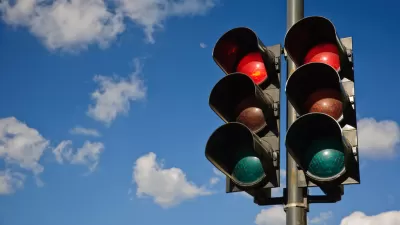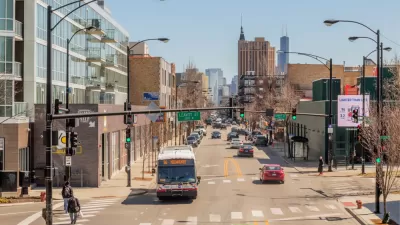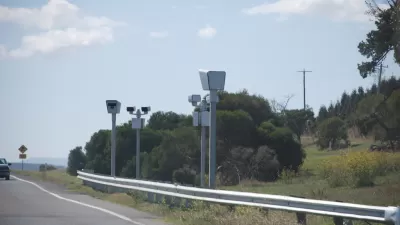Advocates of automated enforcement argue it saves lives, but despite a dramatic rise in speeding tickets, pedestrian fatalities grew in 2021.

Update: The WBEZ article referenced here was corrected by the editors due to errors in reporting and language that stated that the automated enforcement program did not improve safety. Please see their corrections here.
“Last March, Chicago deployed its robo camera system to ticket drivers who sped 6 miles or more above the limit, lowering the threshold from the 10 mph trigger set by former Mayor Rahm Emanuel nearly a decade ago.” A WBEZ article by Michael Gerstein examines the results of the program. “After the threshold went down from 10 to 6 mph, a WBEZ analysis found the number of tickets issued by the city increased dramatically. During the new program’s first full year, the city issued more than 2.34 million speed camera tickets, a roughly 400% increase from the most comparable time period — March 2018 to March 2019, before the pandemic hit, when driving volume had not yet plummeted.” The program brought in close to $106 million since March 2021.
However, “In the year during which the change took effect — 2021 — the number of traffic fatalities actually increased to 173 (compared to 151 deaths in 2020 and 118 in 2019), according to figures cited by the Lightfoot administration.” According to the article, “The average speed of the fastest drivers — those who were ticketed for driving 11-or-more miles per hour over the limit – did not change dramatically.”
While advocates say cameras are a “race-neutral” way to enforce traffic laws, save lives, and reduce the incidence of police encounters, the debate rages on in cities around the country. Some critics of the program call it a cash grab, arguing that it can be “financially crippling” to low-income residents whose neighborhoods, more likely to be located around freeways, tend to have the highest number of cameras. Addressing the question of whether speed cameras disproportionately impact low-income drivers, city comptroller Reshma said in a statement that the city is implementing programs to alleviate financial hardship, such as debt relief for low-income residents.
FULL STORY: Chicago’s speed cameras yield more tickets and fines, but also complaints and controversy

Rethinking Redlining
For decades we have blamed 100-year-old maps for the patterns of spatial racial inequity that persist in American cities today. An esteemed researcher says: we’ve got it all wrong.

Planetizen Federal Action Tracker
A weekly monitor of how Trump’s orders and actions are impacting planners and planning in America.

California High-Speed Rail's Plan to Right Itself
The railroad's new CEO thinks he can get the project back on track. The stars will need to align this summer.

US Senate Reverses California EV Mandate
The state planned to phase out the sale of gas-powered cars by 2035, a goal some carmakers deemed impossible to meet.

Trump Cuts Decimate Mapping Agency
The National Geodetic Survey maintains and updates critical spatial reference systems used extensively in both the public and private sectors.

Washington Passes First US ‘Shared Streets’ Law
Cities will be allowed to lower speed limits to 10 miles per hour and prioritize pedestrians on certain streets.
Urban Design for Planners 1: Software Tools
This six-course series explores essential urban design concepts using open source software and equips planners with the tools they need to participate fully in the urban design process.
Planning for Universal Design
Learn the tools for implementing Universal Design in planning regulations.
City of Camden Redevelopment Agency
City of Astoria
Transportation Research & Education Center (TREC) at Portland State University
Regional Transportation Commission of Southern Nevada
Toledo-Lucas County Plan Commissions





























